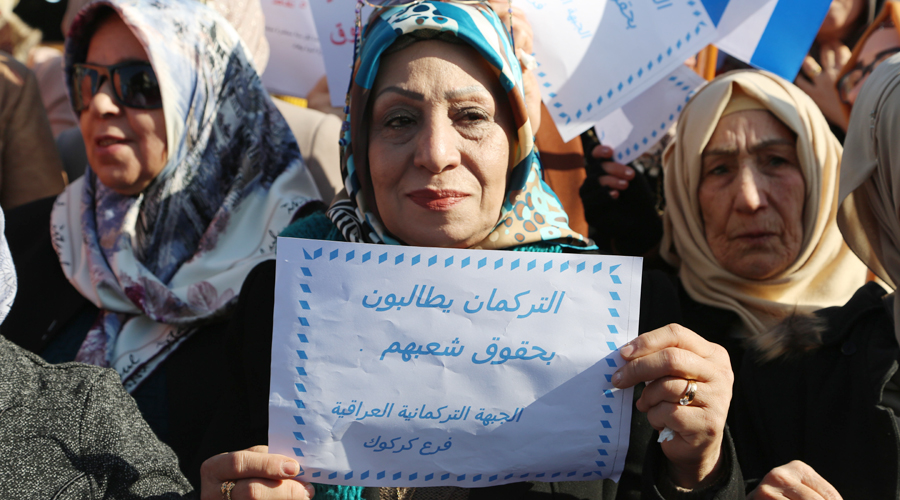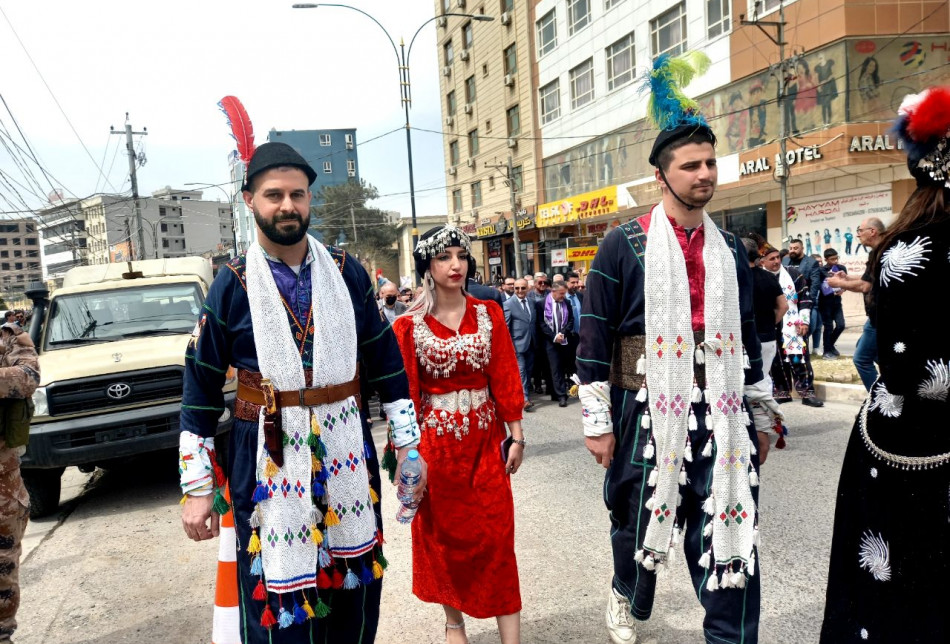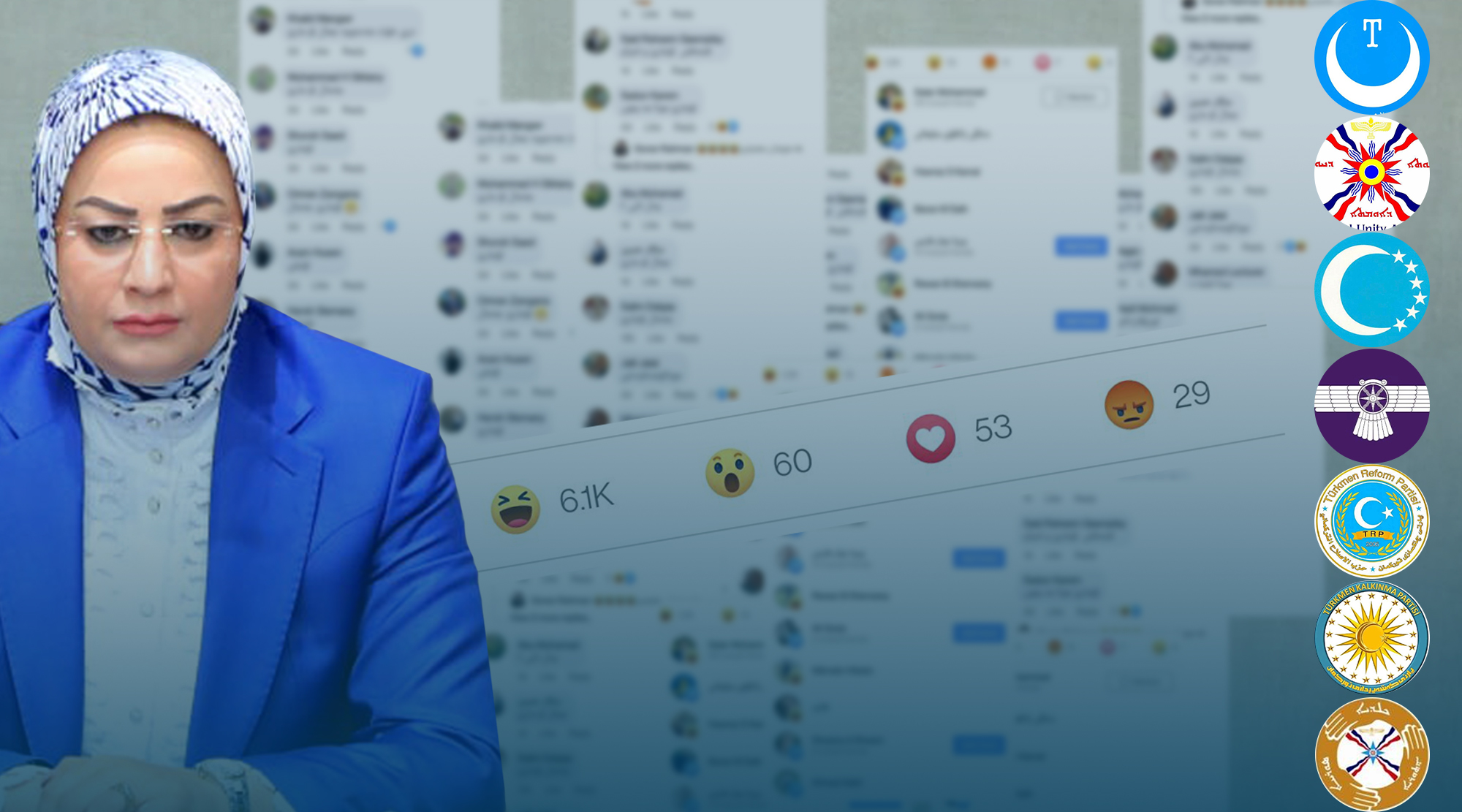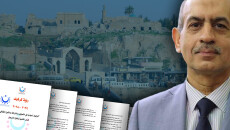The Iraqi Federal Court’s decision to abolish the quota seats allocated to religious and ethnic minorities in the Parliament of the Iraqi Kurdistan Region IKR ignited a wave of hate speech against these components on social media sites platforms and exposed the minorities to a barrage of abuse and ridicule, the first victim of which was a politician from the Turkmen component.
The wave of hate speech attacks against the components began with the announcement of rulings by the Iraqi Federal Court on February 24, 2024, regarding the elections law of the Iraqi Kurdistan Parliament, which included reducing the number of parliamentary seats from 111 seats to 100 seats, dividing the Kurdistan Region into four electoral constituencies, and canceling the 11 quota seats that were allocated For minorities (five seats for Turkmen, five seats for Christians, and one seat for Armenians).
“Jamal: back to home! Mona: back to home! Qardash (Brother in Turkish) back to home.” These are examples of tens of hateful comments written under the reports, news, and video clips published by social media pages about the Federal Court’s decision regarding the quota seats for minorities.
The phrase “Jamal: back to home!” is used as a hint to send the minorities to their homes after losing the quota seats in Parliament and ending their role.
This phrase was originally used by the head of the Patriotic Union of Kurdistan PUK, Bafel Talabani, when he addressed one of his guards, called Jamal, saying to him, “Jamal lo Mare,” meaning in colloquial terms, “Jamal: back to home!” However, this phrase does not seem to be related to the Federal Court’s decision, as it went viral on Kurdish social media a week before the court’s decision was issued, but some repurposed it to offend minorities.
Turkmens, the third largest ethnic group in Iraq after Arabs and Kurds, are spread across the country, residing almost exclusively in the northern towns and villages stretching from Tal Afar through Mosul, Erbil, Altun center of Kirkuk, and Altun Kopri district, Tuz Khurmatu of Salahaddin and Kifri and Khanaqin in Diyala. They are all Muslims, half Sunnis and half Shiites.
Though there are no official records about the Turkmen in Kirkuk, The Turkmen political parties say there are over 200,000 Turkmen voters in Kirkuk which has been divided into three constituencies for 12 seats in the October 10th, 2021 General Elections.
Turkmen political parties have gathered only 100,000 votes in the May 2018 public elections in Kirkuk, making three seats yet dropped to only two seats in the 2021 General Elections.
Mona Qahwachi, the former secretary of the Kurdistan Parliament from the Turkmen component, was among the figures subjected to the greatest amount of abuse and ridicule. A video clip of a press conference by Qahwaji, published on the Rudaw channel page on February 25, generated 7,600 comments, about 7,000 of which included sarcasm and abuse, most of which included the phrase “Back to home,” in addition to 6,100 laughing emojis.

Qahwachi attributed her statements during the conference to the Federal Court’s decision. “The Turkmen component has become strong thanks to the quota system, which enabled us to defend the rights of the Turkmen. Any political party that registers a complaint against minorities is hostile to them,” referring to the PUK which registered the complaint in the Federal Court to abolish the quota seats for minorities.
"Once the ruling was issued, we faced widespread ridicule on social media. We will not accept this abuse. Rather, it will strengthen us even more. We will not go home," in response to the phrase, "Turkmen, back to home!" which was written in the comments.
The video clip of the press conference was also posted on the Nalia Rado and Television NRT channel page, and at least 1,300 comments out of a total of 1,400 comments went to the post, including mockery, reproach, and insults, along with 1,200 laughing emojis.
Any political party that registers a complaint against minorities is hostile to them
The first joint press conference of representatives of the components regarding the court’s decision, in which representatives of the Turkmen, Christians, Chaldeo-Assyrians, and Armenians participated, which was published on the Rudaw channel’s page, received 8,000 emojis of laughter.
In general, the abuse targeted all components represented in the Kurdistan Parliament, primarily the Turkmen who protested strongly against the decision, while Qahwachi was the main victim among the Turkmen.
(KirkukNow) communicated over two days with Mona Al-Qahwaji, who promised to talk about whether or not she would register a complaint, but in the end, she declined to respond.
However, on February 26, the Turkmen National Will Party welcomed the Federal Court’s decision to abolish the quota seats and declared in a statement, “We are not a minority and the decision is correct.”
Despite this, the party was not immune from hate speech, one of the comments on the NRT page was, “You must remove this Blue flag,” and another commenter wrote, “If you don’t consider yourself a minority, we will see you in the elections.”
According to Turkmen politicians, between 100,000 to 400,000 Turkmen live in the IKR while in the last parliamentary elections in 2018, the five Turkmen quota deputies together received less than 9,000 votes.
Azad Kurachi, a member of the fifth session of the Kurdistan Parliament and head of the People’s List (MILAT) for the Turkmen component, told Kirkuk Now, “My children read the comments and ask me: Father, why do people write these comments?” My children say we have not seen a single comment defending us.”
My children read the comments and ask me: Father, why do people write these comments?
The wave of abuse on such a large scale has created controversy among minority families, at a time when the IKR is proud of the coexistence that exists in the region, which officials consider one of their most important gains.
“We do not have these strong material and moral capabilities, and we do not have security forces or Peshmerga. What is happening in the Kurdistan Region is not our fault. People only see the five seats that we have. Why do they tell us back to home?” he added.
The PUK has, in more than one official statement, opposed the quota seats in the form found in the law and believes that the quota seats vote in favor of the Kurdistan Democratic Party KDP, the decades rival of PUK, in most sensitive situations and decisions.
The PUK President said in a statement he made last year, “We will not enter into elections whose results begin with 11 against zero,” hinting that the KDP had secured the 11 quota seats.

The KDP presents itself as a supporter of minorities and expressed in a statement its rejection of the ruling by Iraq’s top court to cancel the quota seats.
The protection of the rights of minorities in the Kurdistan Region was regulated by law, and the third paragraph of Article Three states, “Prohibiting any religious, political, or media call, directly or indirectly, to hatred, violence, intimidation, exclusion, and marginalization, on national, ethnic, religious, or verbal bases."
There are at least ten religious and ethnic components in the Kurdistan Region, including the Turkmen, Assyrian Chaldeans, Armenians, Ezidis, Sabian-Mandaeans, Shabaks, Faili, Zoroastrians, and other minorities.
Amir Othman, Director of the Directorate of Religious Coexistence affiliated with the Ministry of Endowments and Religious Affairs in the Kurdistan Regional Government KRG, told KirkukNow, “We defend minorities by law and any issue that creates a threat to religious or national components we stand against.”
We defend minorities by law and any issue that creates a threat to religious or national components we stand against
"We reject any abuse or disgraceful terms used against minorities on social media sites. We believe that the rights of components are guaranteed in the Kurdistan Region from a political, legal, cultural, and national standpoint."
It has not been proven to (KirkukNow) that the wave of hate speech occurred in a planned manner, but it is clear that some pages linked to political parties and figures are exploiting minorities to gain comments.
A page close to a political party posted a picture of Qahwachi, saying, “What do you think is appropriate for Mona Al-Qahwaji?” The post collected a large number of comments containing sarcasm.
What worries those components is that some prominent and well-known people on social media who identify themselves as journalists or activists are abusing minorities, like others.
Pshtiwan Faraj Mohammed, program director at the Independent Media Organization in Kurdistan, whose organization has run a program on hate speech and polarization during the past three years, told KirkukNow, “It is not unlikely that what is happening now will develop into hate speech and division of the Kurdish house.”
It must We should not forget that there are people who fundamentally oppose the changes taking place in the political system because of these minorities, so it is not unlikely that they will use their platforms on social media against minorities, which may lead to the emergence of hate speech.”






